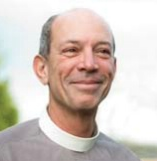Several years ago, I took my mother to see the film Dead Poet's Society, which had just come out. Little did I know that she was suffering from terminal cancer. We saw the movie together. She had been a career teacher. She was thrilled when John Keating (the role played by Robin Williams) challenged his students to "be extraordinary."
Alvy's girlfriend, Annie, the love of his life, the perfect soulmate, his best friend, had begun to wonder about her future; and, thanks to Alvy, who had encouraged her to take risks and fulfill her potential, she decided take time off from Alvy. Consequently, Alvy was devastated, sad, anxious, and, most of all, confused. One day as he was walking along a sidewalk in New York, he stopped to talk to a couple who were walking arm in arm.
“Yeah,” said one of the strangers.
“Yeah?” said Alvy, “So, so, how do you account for it?”
“Uh, I’m very shallow and empty and I have no ideas and nothing interesting to say.”
“And I’m exactly the same way,” said the other stranger.
Alvy came away thinking, “Wow. I guess that’s one way to lead a happy life. Have low expectations and nothing worthwhile to offer the world. If I venture nothing, then I never have to worry about failing.”
It has been my experience that real life rarely turns out like those we read about in story books or see in movies. Real life is difficult. It involves suffering. Real life involves the choices we make and the risks we take. In our pursuit of things that really matter, we know that we will suffer from our mistakes, get hurt when we take risks and fail more often than we succeed.
I am reasonably certain that those reading this blog have failed at something. I know that I have, often miserably and publicly, which is the most humiliating way to do it.
Almost from the moment we are born, we fall short. We can’t even feed ourselves, and our dependence upon others is painfully evident until one day we decide, “I am going to try this on my own. I can do this thing, by myself. I can do this thing, and I will do it! I am going to wrestle, play volleyball or the French Horn, sing in a choir, act, draw pictures, write poetry, speak Chinese.”
From that day forward, we start down the pathway of independence. We become self-sustaining, self-motivating, and self-reliant. Out of trial and error, we emerge stronger.
The leaders and prophets of Israel, who were clearly set apart, all lived lives that included failure. Abraham got lost. Moses was impatient. David had an affair with Bathsheba, which he tried to cover up and couldn’t.
Jesus used each person's failed effort to strengthen that person's character. And those stories teach and strengthen us in our life’s journey and mission. Our failings and shortcomings are not simply minor disruptions in our ongoing journey through life; rather, they are clues about our special selves, those habits that make us different from each other.
I am growing older. I was once a popular young teacher where I work, but not before I was the new teacher and had to earn my reputation. With a new bride by my side, I started my career in a boarding school in Tennessee. It was a brand new school, and we were among the small group of founding members of that school. It was a magical time for me, but my good fortune as I began my career remains a mystery. It seemed that every time the headmaster of that fledgling institution came around the corner I was doing something good, something for students, something inspirational that made the head take note. I was encouraged to continue as a teacher, and I did.
It was into a darkening world, that Jesus taught his disciples to welcome the stranger and comfort the lonely. Jesus was not out for fame. He did not seek glory. Glory, for him, was in emptying himself by the spilling of his blood. Once, when his disciples asked Jesus to grant them a seat, one on his left and one on his right in his glory, his response was, “You do not know what your are asking.”
This was not a challenge to their aspiration for glory, but a redefinition of glory. The disciples had failed to understand that the pathway to everlasting life is not a pathway to privilege, celebrity, wealth, or high standing. That path will detach you from the people you care about and the people who need you.
